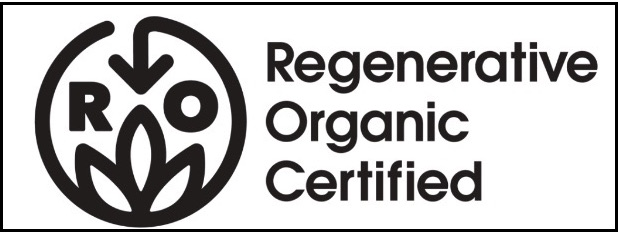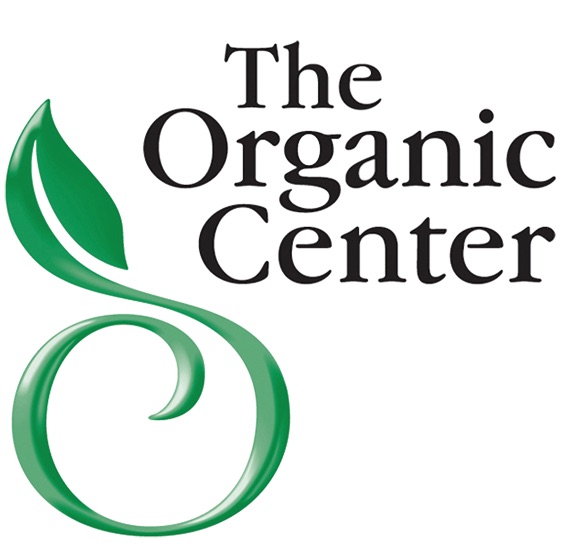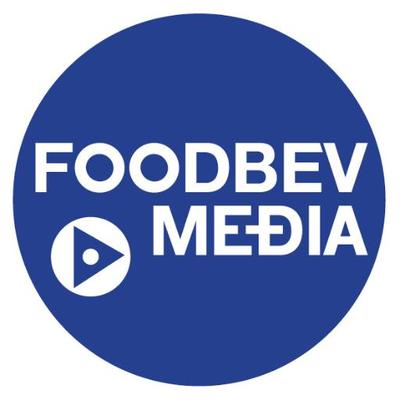
Key Trends for 2019 Point to Larger Structural Changes in the Industry and Satisfying Consumer Demand for Premium, Safer Products
Here is our list of the top 5 organic food trends for 2019.

1) USDA Organic Seal Beginning to Lose its Status as the Gold Standard in Organic This is a trend that many people in the industry, including some leaders of organic NGOs, are not happy to see. However, others view it as either a necessity — because of the USDA’s unwillingness to enforce the rules (illegally allowing hydroponics in organic and turning a blind-eye toward ‘organic factory farms’). Or, they see it as an important evolution for the industry as a whole.
By next summer, it is expected that the first ROC-certified (Regenerative Organic Certification) product will be introduced. Using USDA organic certification as a baseline, the ROC will be an add-on label, which incorporates stringent standards for soil health and social/animal welfare, and attempts to raise the bar of what organic should be. Launched by three very influential organizations — Patagonia, Dr. Bronner’s and Rodale Institute — ROC has some serious financial backing, and dozens of major organic brands are already in the midst of completing its pilot program.
Another add-on label, The Real Organic Project, is expected to conclude its pilot program as well in 2019, and Demeter, a Biodynamic label that many people view as ‘beyond organic’, is undergoing a new marketing push — something that should help increase the certification’s awareness among consumers.
For those of us who were at Expo West 2018 earlier this year, there was a mad rush to attend ROC meetings, and interest among brands was incredibly high.
What did this signify? That a new gold standard in organic may be emerging, and companies do not want to be left behind.
This bifurcation — between products that only have the USDA organic seal and those that have the USDA organic seal and an add-on label — is a trend that we will be watching closely. Its ramifications for the future of organic remain to be seen.

2) Kefir Soda The convergence of several factors — kombucha’s explosive and continued growth, consumers’ appetite for bacteria-friendly drinks, and the demand for carbonated beverages — all make the case for kefir soda to take on more prominence in 2019.
Additionally, as pressed organic juice companies and other beverage brands work harder to differentiate themselves in a brutally competitive market, the kefir soda category is not a particularly crowded one. There is room for plenty of innovation and expansion in this segment, which is early in its development but should see a steep rise in popularity once consumers taste these drinks.

3) The Massive Migration to Organic CBD Oil With President Trump expected to sign the Farm Bill tomorrow, which legalizes industrial hemp and its derivatives, such as cannabinoids, CBD oil is set to become one of the most popular ingredients in the wellness industry. According to market researchers, CBD sales in the U.S. are expected to reach $2.3 billion by 2022.
While we already have seen an explosion in the usage of CBD oil in food and beverages over the past year or two, the fact remains that the number of USDA certified organic CBD oils is minuscule. I know only of four CBD oil brands that currently boast the USDA organic seal, and I know of no CBD-infused food or beverage products that carry the USDA organic seal.
Once having cleared all of the regulatory hurdles from the FDA and on shelves everywhere, health-conscious consumers will no longer be dazzled by the letters “CBD” on any bottle, lotion, or food product. They will demand that these CBD products be of the highest quality and will migrate to organic ones. Brands that sell non-organic CBD oil or use non-organic CBD oil in a food or beverage will no longer be able to convince consumers that they are offering a premium product.
The migration to organic CBD oil will be rapid, and the question then becomes whether the supply chain can handle the explosive demand.

4) Embracing Regenerative Agriculture While ROC will be the most high-profile regenerative certification to hit the organic landscape in the next year, there are numerous entities — Demeter, Regeneration International, Kiss the Ground, Carbon Underground, The Savory Institute and others — that are working hard to push regenerative agriculture.
Many people within and outside of the organic industry view regenerative agriculture as a critical tool to help capture carbon from the environment, mitigate climate change and improve soil health.
Brands, too, are getting behind regenerative agriculture, not only for environmental reasons but they believe that these practices result in more nutritious crops.
Expect to see many more regenerative products hit grocery store shelves in 2019 — whether ROC-certified or not — and brands will be making these products a core part of their marketing efforts. It’s a win-win for everyone, and consumer appetite to support these products will be strong.

5) A Push Away from Conventional Oat Milk…Which May Contain High Levels of Glyphosate There is no question that oat milk has been on a tear as of late. Sales of the non-organic brand Oatly are vastly exceeding the company’s expectations, and the 170-year-old dairy brand HP Hood is expected to launch its first plant-based oat milk line called Planet Oak.
In the organic oat milk category, there are only a handful of players, including Thrive Market and Pacific Foods, but I expect more competition to enter the organic segment for a few reasons.
Aside from people’s seemingly insatiable demand for oat milk, conventional oat-based foods were singled out by the Environmental Working Group as having very high levels of glyphosate. Given the high levels of glyphosate in these oat-based foods — and the fact that glyphosate is known to the State of California “to cause cancer” — it begs the question: why are people drinking conventional oat milk in such large quantities when many of the offerings do not indicate glyphosate test results on their websites or products?
When more people realize (a) the positive macro trends for this drink and (b) consumers’ growing concern about glyphosate, many more organic oat milk brands or products will be launched.
(Oatly, although not organic, understands consumers’ concern about glyphosate and has received Glyphosate Residue-Free certification.)
 |
Wishing you a great 2019! 
Max Goldberg, Founder |
Quick Hits
* Jay-Z and founder/CEO of 22 Days Nutrition Marco Borges have launched The Greenprint, a platform to encourage people to embrace a plant-based lifestyle.
* On January 7, 2019, Vote Hemp will host a Victory for Hemp press conference and reception in Washington, D.C.
* This will be to discuss the federal legalization of hemp farming in the U.S., as per the 2018 Farm Bill, and the media is encouraged to attend. Contact Lauren Stansbury at Vote Hemp for more information and to RSVP (lauren@votehemp.com).
* Important Watch: Excellent video profiles of organic farmers from The Real Organic Project. Hearing directly from these farmers about how they operate and the challenges that they face is of critical importance.
* Tehran is hosting an organic food fair. Who knew?
* KeHE, a distributor of organic and natural food, has announced a new generation of CAREtrade Partners.
* Next Wednesday, Organic Insider will not be published, and our next scheduled newsletter will come out on January 2, 2019.
* Thank you so much for being a reader in 2018 and if you’d like to support what we are doing, please share Organic Insider with your network and encourage them to subscribe to our newsletter.
New Organic Products
MycoShield Peppermint Spray from Host Defense Mushrooms
Want to keep your immune system strong while you’re on the go? This organic MycoShield peppermint spray from Host Defense Mushrooms contains five immune-boosting mushroom species – agarikon, red reishi, chaga, birch polypore, turkey tail – and organic peppermint oil.
Spiced Apple Cider from Suja
Containing only three ingredients — apple juice, Vietnamese ground cinnamon, clove — Suja’s organic, cold-pressed spiced apple cider contains no added sugar and is only available for a few more weeks. Get it while you can!
Mountain Ranch Pumpkin Seeds from Skout Backcountry
The mountain ranch organic roasted pumpkin seeds from Skout Backcountry are not only unique because of their great taste, but unlike many other pumpkin seeds, these are not grown in China. The company only uses Oregon-grown organic pumpkin seeds from a family farm.
Want your product profiled here? Learn more
Weekly News Summaries


The Organic Center Responds to Study About Negative Effects of Organic Farming
A ridiculous study making the rounds on the internet this week is promoting the idea that organic farming is worse for the environment than non-organic farming. The Organic Center responds.

Questioning the Legality of DHA Algal Oil Used in Horizon Organic Milk
By Peter Whoriskey
Controversy remains about the legality of DHA algal oil, which is used Horizon's organic milk. This is an ingredient that The Cornucopia Institute has been fighting against for many years.

Turning the Art of a Product Launch into a Science
By Marsha McGraw
Within two years, 85% of all new CPG products have been removed from the shelves. Here's an expert's take on what to do.


Kyrgyzstan Is Going 100% Organic Within 10 Years
Becoming only the second country in the world to go 100% organic, the parliament in Kyrgyzstan has ordered that all of its agriculture revert to organic by 2029.

Roar Organic Raises $5.6M
Electrolyte-infused beverage brand Roar Organic has closed on $5.6 million in funding led by NYC-based AccelFoods.


Organic Chocolate Company Fairafric Gives Equity to its Farmers in Ghana
By Niamh Michail
Very cool! Fairafric, which sources and produces its organic chocolate from Africa, has purchased equity for its farmers, making them co-owners in the business.

The Real Struggle of Young Farmers Today
By Lucia Graves
Seeking a return to an agrarian lifestyle, young farmers face very serious financial challenges and are pushing hard for meaningful policy changes.
The material in this newsletter is copyrighted and may be reprinted by permission only. All requests must be in writing. Please use our contact form to request republication rights.
Newsletter Archive
Quick Hits
* Jay-Z and founder/CEO of 22 Days Nutrition Marco Borges have launched The Greenprint, a platform to encourage people to embrace a plant-based lifestyle.
* On January 7, 2019, Vote Hemp will host a Victory for Hemp press conference and reception in Washington, D.C.
* This will be to discuss the federal legalization of hemp farming in the U.S., as per the 2018 Farm Bill, and the media is encouraged to attend. Contact Lauren Stansbury at Vote Hemp for more information and to RSVP (lauren@votehemp.com).
* Important Watch: Excellent video profiles of organic farmers from The Real Organic Project. Hearing directly from these farmers about how they operate and the challenges that they face is of critical importance.
* Tehran is hosting an organic food fair. Who knew?
* KeHE, a distributor of organic and natural food, has announced a new generation of CAREtrade Partners.
* Next Wednesday, Organic Insider will not be published, and our next scheduled newsletter will come out on January 2, 2019.
* Thank you so much for being a reader in 2018 and if you’d like to support what we are doing, please share Organic Insider with your network and encourage them to subscribe to our newsletter.



